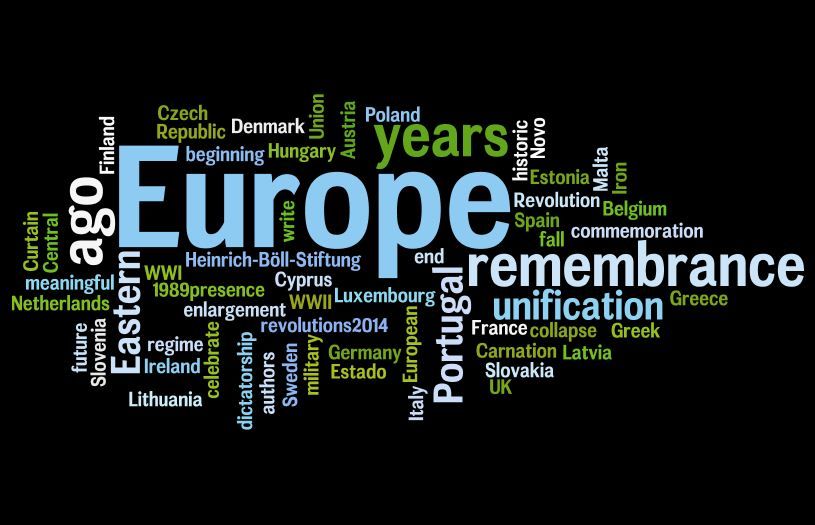
2014: A European Year of Remembrance
The year 2014 will see the commemoration of a number of historic events that have been turning points in European history. To start with, the beginning of two devastates World Wars that have overshadowed Europe’s history for a long time. But there are also happy dates to remember. 40 years ago, on 25 April, the Carnation Revolution in Portugal made an end to a 48-year long dictatorship, the ‘Estado Novo’. Also 40 years ago, on 24 July, the Greek military regime that had ruled the country with an iron fist since the military coup of 21 April 1967 collapsed. And 25 years ago the (mostly) peaceful revolutions in Eastern and Central Europe led to the fall of the Iron Curtain and, fifteen years later, the ‘Eastern enlargement’ of the European Union.
The Heinrich-Böll-Stiftung European Union has asked authors from various European countries to write about what these various historical dates mean for the presence and future of Europe.
These will be the articles in the order of their publication:
MARCH
- Introduction: Ilana Bet-El, historian and political analyst
- Portugal 1974-2014: Viriato Soromenho-Marques, Professor for Political Philosophy, Philosophy of Nature and European Ideas in the Departments of Philosophy and European Studies of the University of Lisbon and Ricardo Cabral, Professor of Economics, Madeira University
- Greece 1974-2014: Dmitri Sotiropoulos, Associate Professor at the Department of Political Science and Public Administration of the University of Athens
MAY
- Europe after the Eastern Enlargement: 2004-2014: Dr Ulrich Sedelmeier, London School of Economics, Department of International Relations, Associate Professor in the International Relations of Europe
JUNE
- WWI and Europe today: Maarten van Alstein, researcher Vlaams Vredesinstituut, Susanne Spröer, Head of Culture Background, Deutsche Welle, Bonn, Germany and Dr Fraser Cameron, director EU-Russia Centre
JULY
- WWII and Europe today: Karolina Wigura, Columnist, Kultura Liberalna, Poland, Head of the Political Section at Kultura Liberalna, Assistant Professor at the Institute of Sociology at the University of Warsaw, Prof Dr Claus Leggewie, Director of the Institute for Advanced Study in the Humanities Essen, Germany and Edouard Gaudot, historian and political scientist, political advisor to the Greens, European Parliament
- Romania 1989-2014: Claudiu Craciun, PhD, Lecturer in European Politics at the Faculty of Political Science, National School of Political Studies and Administration in Bucharest
SEPTEMBER
- From the Velvet Revolution till now: Jiří Pehe, political analyst and writer
OCTOBER
- Hungary 1989-2014: Krisztián Ungváry, historian.